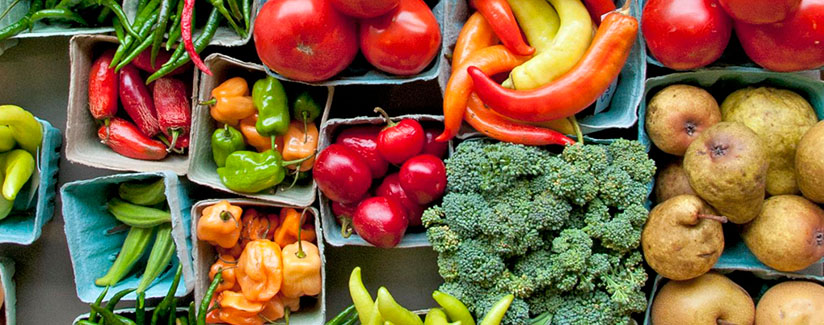
What Do Food Experts Eat? Organic or GMO Foods?
We recently received a question from website visitor “Chris” asking the experts if they prefer to eat organic or conventional food. To answer the question, we reached out to Dr. Barbara Klein and Dr. Ethan Bergman.
Barbara Klein, PhD – Professor Emerita of Foods & Nutrition at the University of Illinois at Urbana-Champaign
My food choices are based on a variety of criteria, not just whether a product is made (or not made) from GMO ingredients or was grown organically. What is available and looks good in my supermarket or farmer’s market, what my family likes to eat, what fits in our healthful diet, what it costs—all of these are factors in food choices. If organically grown chickens are available (usually at my local farmers’ market or food coop), I choose those because they usually taste really good. If organic vegetables cost twice or three times conventionally grown and don’t look any better, then I choose conventional. The preponderance of evidence does not lead me to believe that GMOs have any negative health effects.
As for GMOs versus organic vegetables and fruits, we have to recognize that essentially all of the produce we buy today has been genetically modified over the centuries. Farmers have been modifying plants’ genes to change a wild plant into a food plant, and increase its yield, nutritional value and hopefully its eating quality. It is more important to eat a healthful diet, one that meets our nutritional needs and our taste preferences, than to pick and choose on the basis of GMO or organic.
Ethan Bergman, PhD, RD, CD, FADA – Current President of the Academy of Nutrition and Dietetics and Professor of Food Science & Nutrition and Associate Dean of the College of Education and Professional Studies at Central Washington University
When it comes to organically grown foods, research is inconclusive on whether organics are more or less nutritious than foods that are conventionally grown, so the choice is up to each individual. We certainly don’t want to see a situation where people don’t eat fruits and vegetables because they can’t afford an exclusively organic diet. If your goal is to limit your exposure to pesticides, herbicides, antibiotics and hormones, you may want to look at food labels for organic.
For anyone who wants to eat healthfully or help prevent or manage a chronic disease such as diabetes, as a registered dietitian I recommend maximizing the overall quality of your diet by eating fruits and vegetables, fish, nuts, seeds and beans. You can’t go wrong eating these foods – whether they are organically produced or not.
Regarding genetically modified organisms (GMOs) or genetically engineered (GE) foods, I support the viewpoint of the Academy of Nutrition and Dietetics. The Academy does not currently have a position on issues pertaining to GMOs or labeling foods that are genetically modified or enhanced. All of the relevant science is being extensively analyzed and the Academy expects to issue an official position paper that will address GMO and GE foods in 2013. Until then, as president of the Academy, it would be inappropriate for me to comment on these products.
Do you have a food question for the experts? Submit a question here.


























